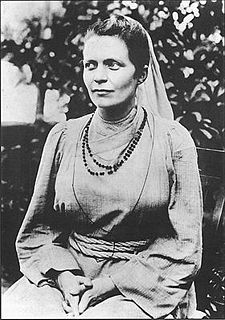A Quote by Stacy Schiff
For thousands of years, men have written history, so it seems to me that most of what we've read is from the male point of view.
Quote Topics
Related Quotes
One of the things that's important for anybody adapting source material that is primarily a male buddy picture is to find ways to latch on to strong female characters in the piece and bring them to the forefront and celebrate their point of view alongside the men; otherwise, it becomes a sausage party, and it's a singular point of view.
We must create a history of India in living terms. Up to the present that history, as written by the English, practically begins with Warren Hastings, and crams in certain unavoidable preliminaries, which cover a few thousands of years...The history of India has yet to be written for the first time. It has to be humanized, emotionalized, made the trumpet-voice and evangel of the race that inhabit India.
Pornography reveals that male pleasure is inextricably tied to victimizing, hurting, exploiting; that sexual fun and sexual passion in the privacy of the male imagination are inseparable from the brutality of male history. The private world of sexual dominance that men demand as their right and their freedom is the mirror image of the public world of sadism and atrocity that men consistently and self-righteously deplore. It is in the male experience of pleasure that one finds the meaning of male history.
I read of the revivals of the past, great sweeping revivals where thousands of men were swept into the Kingdom of God. I read about Charles G. Finney winning his thousands and his hundreds of thousands of souls to Christ. Then I picked up a book and read the messages of Charles G. Finney and the message of Jonathan Edwards on 'Sinners in the Hands of an Angry God,' and I said, 'No wonder men trembled; no wonder they fell in the altars and cried out in repentance and sobbed their way to the throne of grace!'
History teaches us that a given view has been abandoned in favor of another by all men, or by all competent men, or perhaps by only the most vocal men; it does not teach us whether the change was sound or whether the rejected view deserved to be rejected. Only an impartial analysis of the view in question, an analysis that is not dazzled by the victory or stunned by the defeat of the adherents of the view concerned - could teach us anything regarding the worth of the view and hence regarding the meaning of the historical change.
For most of human history, 'literature,' both fiction and poetry, has been narrated, not written — heard, not read. So fairy tales, folk tales, stories from the oral tradition, are all of them the most vital connection we have with the imaginations of the ordinary men and women whose labor created our world.
There are times when the gospel just seems to be powerfully at work in a nation, and thousands upon thousands are converted. If you think about what has happened in Latin America, Africa and East Asia all in the last hundred years, it is breathtaking. We have seen an expansion of the gospel as we have never seen before in the history of the church.







































